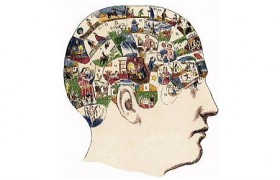Zonder the war the mentionen, mogen we stellen dat er tussen de Engelsen en de Duitsers meer ligt dan een … Read More →
New Publication in Journal of Cognitive Neuroscience
Brain circuit for cognitive control is shared by task and language switching Controlling multiple languages during speech production is believed … Read More →
Nieuwe Feiten – Vergeten door te onthouden?
Hebt u ook wel eens verzucht dat u alle nutteloze gegevens die uw hersenen hebben opgeslagen zou willen overschrijven met … Read More →
New Publication in Psychonomic Bulletin & Review
Frequency Effects in Monolingual and Bilingual Natural Reading This paper presents the first systematic examination of the monolingual and bilingual … Read More →
New Publication in Aphasiology
Aphasia therapy early after stroke: Behavioural and neurophysiological changes in the acute and post-acute phase Background: There is reasonable evidence … Read More →
Nieuwe Feiten – Waarom begaan verstandige mensen stommiteiten?
Bent u ook met de beste intenties aan 2015 begonnen? Gaat u dit jaar verstandiger en doordachter omgaan met mensen … Read More →
New Publication in Journal of Experimental Psychology: Learning, Memory & Cognition
Verbal and non-verbal cognitive control in bilinguals and interpreters The present study explored the relation between language control and non-verbal … Read More →
New Publication in Bilingualism: Language and Cognition
Bilingualism delays clinical manifestation of Alzheimer’s disease The current study investigated the effects of bilingualism on the clinical manifestation of … Read More →
New publication in Interpreting
Simaltaneous interpreting and working memory executive control Working memory is a complex cognitive component responsible for maintenance of information during … Read More →
New Publication in Journal of Neurolinguistics
The effects of subthalamic nucleus stimulation on semantic and syntactic performance in spontaneous language production in people with Parkinson’s disease … Read More →




